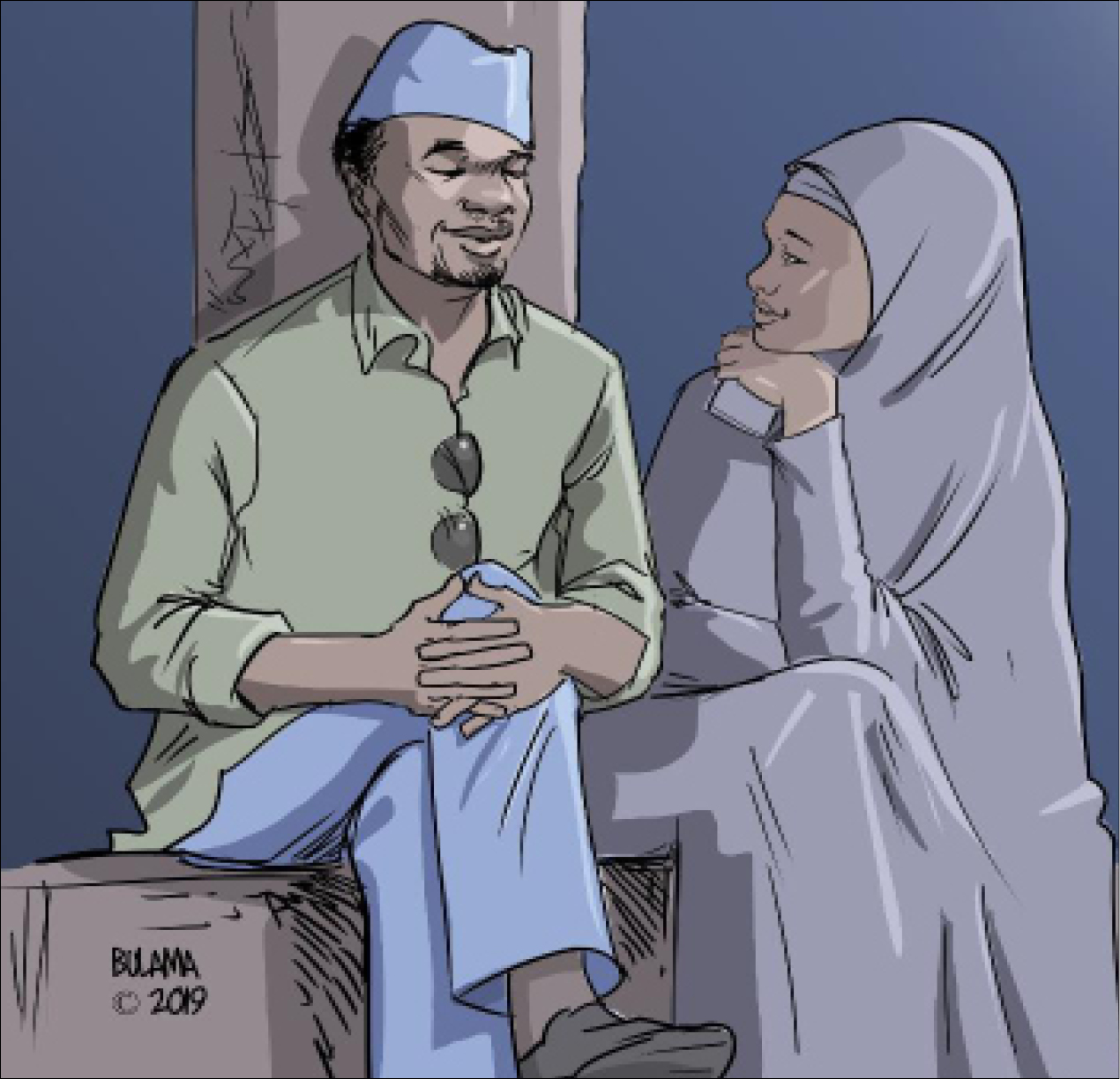Night courtship and discussions between persons of opposite sex was recently banned by the Kirikasamma Local Government Council (LGC) in Jigawa state. This was done to tackle the rampant cases of out-of-wedlock pregnancy among girls in the area. The Information Officer of the Kirikasamma, Sanusi Doro, said the Council Chairman, Salisu Kubayo, signed the bye-law after ten councillors of the LGC unanimously consented to it during a council meeting. It was reported that the signing of the law was done in a ceremony widely attended by residents of the area including the chief imam of the community.
According to the Information Officer, members of the opposite sex as fiancés and fiancées found to have violated the law would be sentenced to a prison term of six months with an option of fifty thousand naira (N50, 000) fine. Doro said the bye-law prohibits any form of meeting between a man and a woman at night; adding that they can only meet to discuss during the day.
Commenting on the development, the leader of councillors in the Kirikasamma LGC, Sa’idu Marma, said the enactment of the law was necessitated by the incessant complaints from parents over frequent incidences of out-of-wedlock pregnancies. Most people in the area widely believe that this phenomenon is a consequence of free and un-regulated night meetings and discussions between opposite sexes. Marma added that as leaders, they would be held responsible if they fail to find solutions to the challenges confronting the people of Kirkasamma. He said fornication and unwanted pregnancies among girls is a major challenge bedevilling their local government area.
Also speaking at the event, the Chief Imam in Kirikasamma LGC, lamented over the strange tradition whereby boys and girls frequently organised parties in various locations in the area. He said this has resulted in many immoral activities between the opposite sexes. He commended the council chairman on the new law. He also said the bye-law would help to address the social vices that are troubling parents in the area.
It is heart-warming that a LGC in the country has realized that one of its fundamental roles as a structure of government is to enact laws that seek to provide solutions to immediate problems of its communities. In our democratic history, not many local government chairmen and councillors in Nigeria seem to be aware of their legislative powers to tackle local problems that are peculiar to the communities they represent. Perhaps, this is why not many LGCs in the country have been heard to have made any laws. Traditionally, many people elected as chairmen or councillors Nigeria believe that only the federal or state government exclusively have solutions for most, if not all challenges, that confront their respective communities.
By extension, the very low level of education of many local government chairmen and councillors could be responsible for the inability of most LGCs in the country to pass far-reaching bye-laws. One is prompted to insinuate that if many of the 774 LGCs in the country had enacted relevant laws at the local level to tackle the peculiar problems of their local communities, social problems including drug and substance abuse may not be as alarming as we have it today particularly in the northern part of the country.
Night courtship among young boys and girls could become a problem if parents fail to provide necessary guidance to their young children and wards through effective control and monitoring. The failure by parents to also provide the basic needs of their female children could be a critical factor in this matter. Due to such dereliction of parental duties and responsibilities, a girl-child might be pushed to look elsewhere for funds with which to meet some of her basic needs. Similarly, the character of some parents and leaders at different levels are not exemplary enough. Some are immorally bankrupt as if they were delinquent children.
While the Kirkasamma bye-law is a practical means for forestalling the probable consequences of uncontrolled interactions among men and women, time may not actually be a serious impediment to individuals with substantial maladjusted personality. They could still have their way even in the daytime although not as freely as they would have wanted. This explains why personal discipline and the inculcation of moral training by parents in to the mind and character of their children is central and more critical than the enactment of any bye-laws.
Truly, free-for-all meetings between a man and a woman especially at night provide convenient chances for engaging in immoral activities that could result in pregnancies out of wedlock. Besides being a sin, such pregnancies breed illegitimate children in the society. Illegitimate children also have social challenges associated with their upbringing.
It would be recalled that the new law in Kirkasamma LGC came days after Kano State also banned men and women from boarding the same commercial tricycles; a law which implementation was suspended soon after it was announced. Addressing newsmen at the headquarters of the Kano State Hisbah Board during a press conference, the Commander-General of the Board Shaykh Harun Ibn-Sina said the policy was not a new one because as it has been in existence since 2005. Represented by the Board’s Director General, Dr Aliyu Musa Aliyu, Shaykh Ibn-Sina said that it is the implementation and not the policy that has been suspended.
We encourage local government chairmen and councillors in the country to take advantage of their legislative powers and enact laws that would address problems facing the people they represent. May Allah (SWT) guide elected members of LGCs in other states of the federation to emulate Kirikasamma LGC of Jigawa state by legislating and passing appropriate laws that will solve immediate social problems of their local communities, amin.

 Join Daily Trust WhatsApp Community For Quick Access To News and Happenings Around You.
Join Daily Trust WhatsApp Community For Quick Access To News and Happenings Around You.


